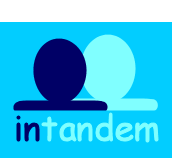Throughout our MSc in Speech and Language Sciences at UCL we have been trained to use active listening. It’s a key clinical skill. As trainee SLTs we listen when we collaborate with clients to take case histories. But these are often about a snapshot in time. What happens when clients complete assessment and intervention? How does communication continue to impact their lives? It is not often that as students we are given the chance to listen to clients’ entire life journeys.
Cathy Sparkes and Sam Simpson’s workshop on ‘Living with a Communication Disability: Insider Accounts’ provided an opportunity for us to hear directly from clients about their experiences. Rather than be passive consumers of these narratives, we were asked to be ‘outsider witnesses’; to really think about the images the speakers’ stories evoked and how their stories connected with our own experiences.
As trainee practitioners this was enlightening. As a whole class we heard from a young woman who had a stammer; she generously revealed the psychosocial impact this had on her, not only as a child but throughout her adult life. It cannot have been easy to explain to over 50 strangers very personal, emotional aspects of her journey. We were then asked to reflect and explain how her personal story resonated with our own. This was an invaluable moment for the student SLT to step into the client’s shoes and share a personal account with the client and colleagues, allowing a change of dynamic and a rebalancing of power in the client-therapist relationship. Seeing each other as human beings with a past, present, and future, allowed for more thoughtful consideration of the emotional, physical, and practical impact of the client’s communication difficulty. For some of us it required stepping outside our comfort zone – working out whether we felt comfortable sharing our inner thoughts and feelings in a large group, allowing us to learn more about ourselves.
The class broke into smaller groups and we heard from a range of clients with acquired neurological conditions about how their communication and lives had changed. These discussions were full of lively exchange and humour. Stories of loss and adjustment were interspersed with stories of love and strength. Hearing about the clients’ journeys without a clinical context allowed for a deeper understanding of how their acquired neurological difficulties affected them.
The workshop made many of us think differently about the therapeutic process and what we often ask of our clients. And made us realise that it is ok and perfectly human for us to have emotional responses to clients’ stories. In fact, this reflection can lead to us creating better individual support in partnership with our clients.
Sophie Payne, Lina Hansard and Helen Brockett
Year B students, MSc Speech and Language Sciences, UCL

